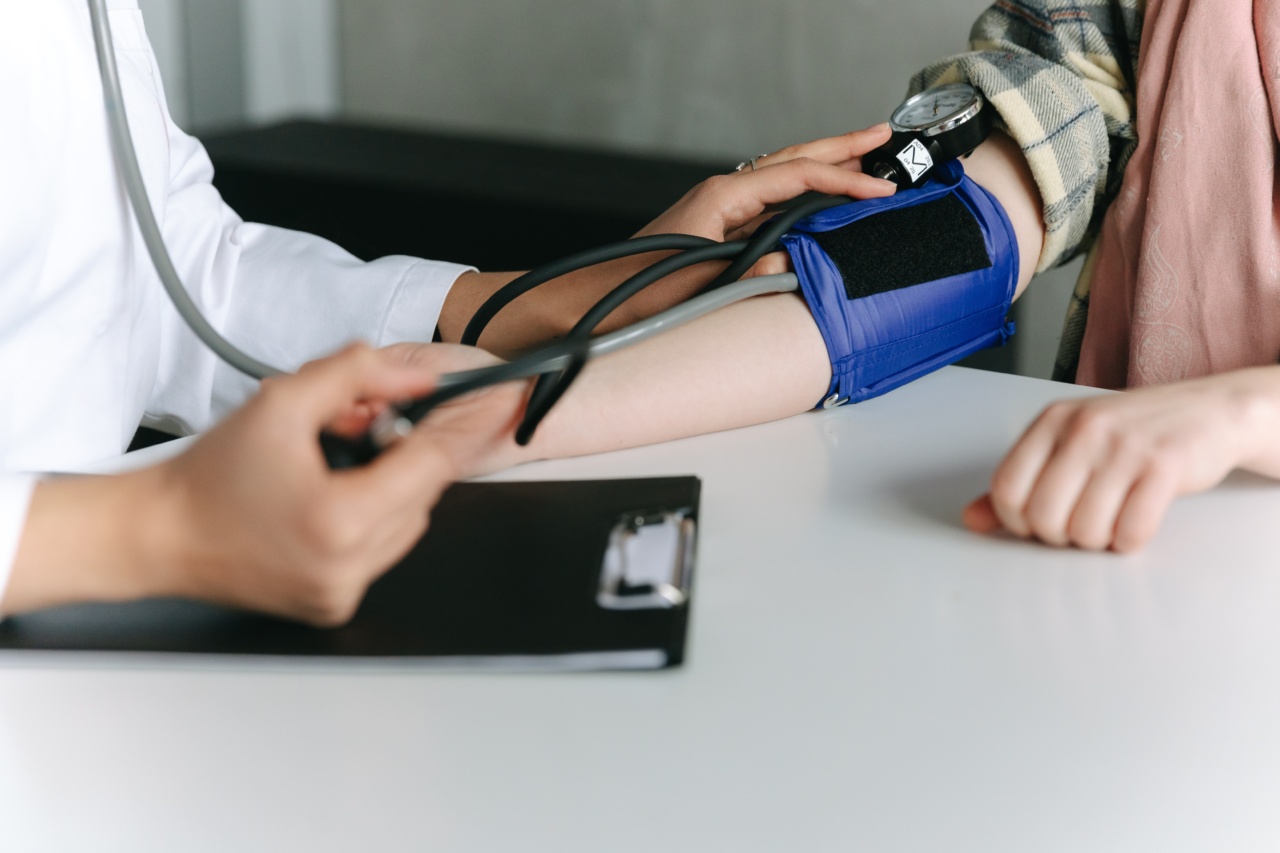Hypertension, commonly known as high blood pressure, affects millions of people around the world and is a major risk factor for various cardiovascular diseases.
While mild or occasional high blood pressure may not pose any major health risks, uncontrolled hypertension can lead to serious, life-threatening complications. Here are some of the dangers associated with uncontrolled hypertension:.
1. Cardiovascular Disease
Uncontrolled hypertension can damage the blood vessels and arteries, leading to an increased risk of cardiovascular disease. High blood pressure can cause the arteries to become less elastic and narrower, which can lead to the formation of blood clots.
Blood clots can block the flow of blood to vital organs, such as the heart and brain, leading to heart attack or stroke.
2. Kidney Disease
The kidneys are responsible for filtering waste and excess fluids from the bloodstream. Uncontrolled hypertension can damage the blood vessels in the kidneys, leading to kidney disease.
This can cause a buildup of waste and fluids in the body, leading to symptoms such as swelling in the feet and ankles, fatigue, and shortness of breath. In severe cases, kidney disease can lead to kidney failure, which requires dialysis or a kidney transplant.
3. Eye Disease
Uncontrolled hypertension can damage the blood vessels in the eyes, leading to eye disease. This can cause vision loss or blindness.
Hypertension can also cause fluid buildup in the retina, leading to a condition called macular edema, which can also cause vision loss.
4. Aneurysm
An aneurysm is a bulge in the wall of an artery. Uncontrolled hypertension can weaken the walls of the arteries, leading to the formation of an aneurysm.
Aneurysms can be dangerous because they can burst, causing massive internal bleeding, which can be life-threatening.
5. Cognitive Decline
Uncontrolled hypertension can damage the blood vessels in the brain, leading to cognitive decline. This can cause problems with memory, concentration, and other cognitive functions.
Hypertension is also a major risk factor for dementia, a condition that affects the brain and causes problems with memory, thinking, and behavior.
6. Sexual Dysfunction
Hypertension can cause sexual dysfunction in both men and women. In men, hypertension can lead to erectile dysfunction, making it difficult to achieve or maintain an erection.
In women, hypertension can decrease sexual desire and lead to problems with arousal and orgasm.
7. Sleep Apnea
Uncontrolled hypertension can increase the risk of sleep apnea, a condition in which a person stops breathing for brief periods during sleep. This can cause excessive daytime sleepiness, fatigue, and other symptoms.
Sleep apnea is also a risk factor for other health problems, such as heart disease and stroke.
8. Metabolic Syndrome
Metabolic syndrome is a group of risk factors that increase the risk of cardiovascular disease and diabetes. Uncontrolled hypertension is one of the risk factors for metabolic syndrome.
Other risk factors include high cholesterol, high blood sugar, and obesity.
9. Reduced Life Expectancy
Uncontrolled hypertension can significantly reduce life expectancy. According to the World Health Organization, hypertension is a leading cause of premature death worldwide.
It is estimated that uncontrolled hypertension contributes to about 9.4 million deaths each year.
10. Complications During Pregnancy
Hypertension can also lead to complications during pregnancy. High blood pressure can damage the blood vessels in the placenta, leading to decreased blood flow to the baby. This can lead to low birth weight, premature birth, or stillbirth.
Conclusion
Uncontrolled hypertension is a serious health problem that can lead to various complications, including cardiovascular disease, kidney disease, eye disease, aneurysm, cognitive decline, sexual dysfunction, sleep apnea, metabolic syndrome, reduced life expectancy, and complications during pregnancy. If you have high blood pressure, it is important to work with your healthcare provider to develop an individualized treatment plan to keep your blood pressure under control.




























